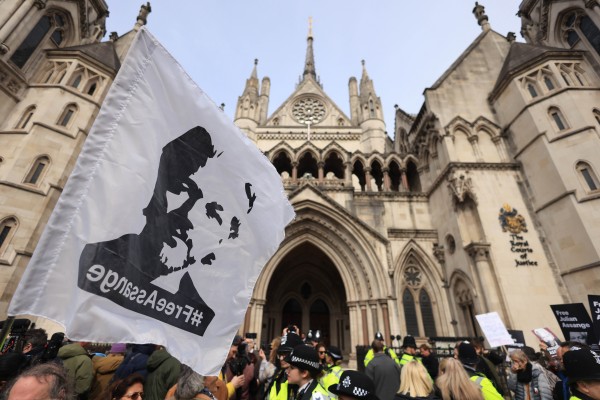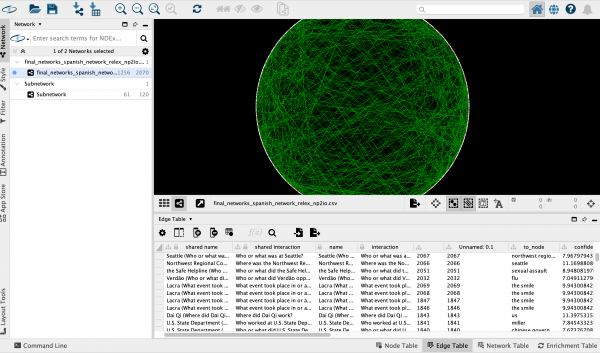Beginning this week, IPI will undertake a two-week, four-nation mission in the Caribbean to push for the repeal of criminal defamation laws. From June 9 to 22, IPI delegates will visit Barbados, the Dominican Republic, Jamaica, and Trinidad and Tobago to meet with representatives of government, media, and civil society. As part of IPI’s strategic partnership with the Association of Caribbean Media Workers (ACM), ACM President Wesley Gibbings will join the IPI press freedom mission in Barbados. In an interview with IPI associate Scott Griffen, Mr. Gibbings explains how criminal defamation laws affect the profession of journalism in the Caribbean.
IPI: Speaking generally, what is the danger inherent in criminal defamation laws?
Wesley Gibbings: There is little doubt that the fear of imprisonment or a heavy fine can have a chilling effect on free speech. I also believe that such laws do not represent a legitimate balance between press freedom and the right to protect one’s reputation.
IPI: Why is criminal defamation a pressing issue in the Caribbean in particular?
WG: The issue becomes increasingly pressing as Caribbean territories confront a variety of social, economic and ecological challenges – solutions to which are being increasingly derived from the view that greater social control is required to create a sense of orderliness and an unfettered environment for the achievement of social, economic and political progress.
IPI: Has there been any recent application of defamation laws?
WG: In 1998 and 1999 cases were brought in Grenada against Stanley Charles (seditious libel) and George Worme (criminal libel) by the then-prime minister Dr. Keith Mitchell. There was also the 2005 case against Lennox Linton, a Dominican broadcaster resident in Antigua and Barbuda, by the latter country’s Diretor of Public Prosecutions. [IPI Note: The George Worme case eventually reached the Privy Council of the United Kingdom, which upheld Grenada’s criminal libel laws.]
IPI: How do these laws affect the operations of the media in the Caribbean? What are the consequences in particular on investigative journalists?
WG: The spectre of criminal defamation charges does not hang as imminently as the constant threat of civil action. But the fact that parliaments have not found it necessary to remove it from the statute books indicates that politicians, in particular, are keen on maintaining it as part of their arsenal against an increasingly inquisitive press and recalcitrant citizens.
IPI: What are the ultimate consequences of criminal libel laws for society and for democracy in the Caribbean?
WG: Caribbean journalists and persons interested in expressing their thoughts and opinions are forced, by threat of criminal conviction, to impose a high level of self-censorship. The ultimate consequence would be silence, when expression is most needed.
IPI: What can be gained by abolishing criminal libel? How will Caribbean society benefit?
WG: Abolishing criminal defamation will move Caribbean societies closer to the aspirations of the inter-American democratic system which has long signaled the threat such a law bears against freedom of expression. In one 2004 judgment, the Inter-American Court on Human Rights ruled that criminal proceedings in one such case violated the American Convention on Human Rights because they were an “excessive limitation in a democratic society.”
IPI: What is the historical context of these laws? Many of them are colonial relics – haven’t they been more seriously examined before?
WG: Criminal defamation exists in many jurisdictions around the world and emerge out of many different contexts. The one commonality might be that they existed in the past to consolidate a repressive, elitist status quo. Recent Caribbean cases all emerge from the responses of political administrations. This should indicate to us that the basic intent remains the same.
IPI: What about defamation and journalistic ethics? Supporters of criminal defamation laws have expressed concern that in the absence of such laws newspapers would have free rein to print malicious and untruthful reports, perhaps for political reasons.
WG: None of what I have said about criminal defamation should be construed as building an argument that persons should not be entitled to take action in the court to preserve their reputations. The civil courts provide suitable, if sometimes unbalanced, remedies. Newspaper ethics provide the professional standards and the law prescribes community standards and appropriate penalties. In no instance, though, should it have the impact of criminalising speech or expression.
IPI: What is the situation of civil defamation laws in the Caribbean? Are you concerned that excessive civil lawsuits might simply supplant criminal defamation cases as a way of intimidating the media?
WG: Abuse of recourse to civil lawsuits clearly exists as a major factor in the silencing of the media and others. The growing litigious nature of our societies has not helped the situation. The proper approach would be to ensure that the regimes that exist to punish people are not unbalanced and do not lead to media closures, as was the case with George Worme’s Grenada Today newspaper following the success of a parallel civil suit against him.


